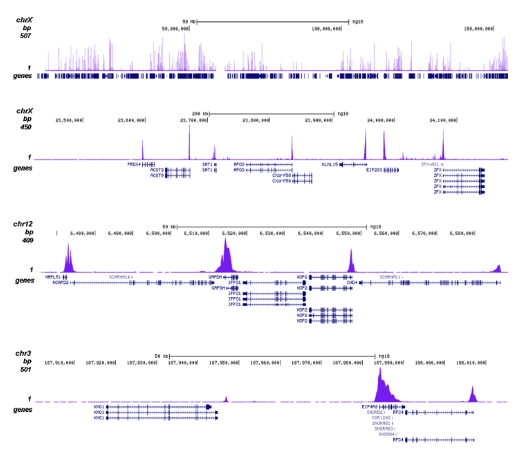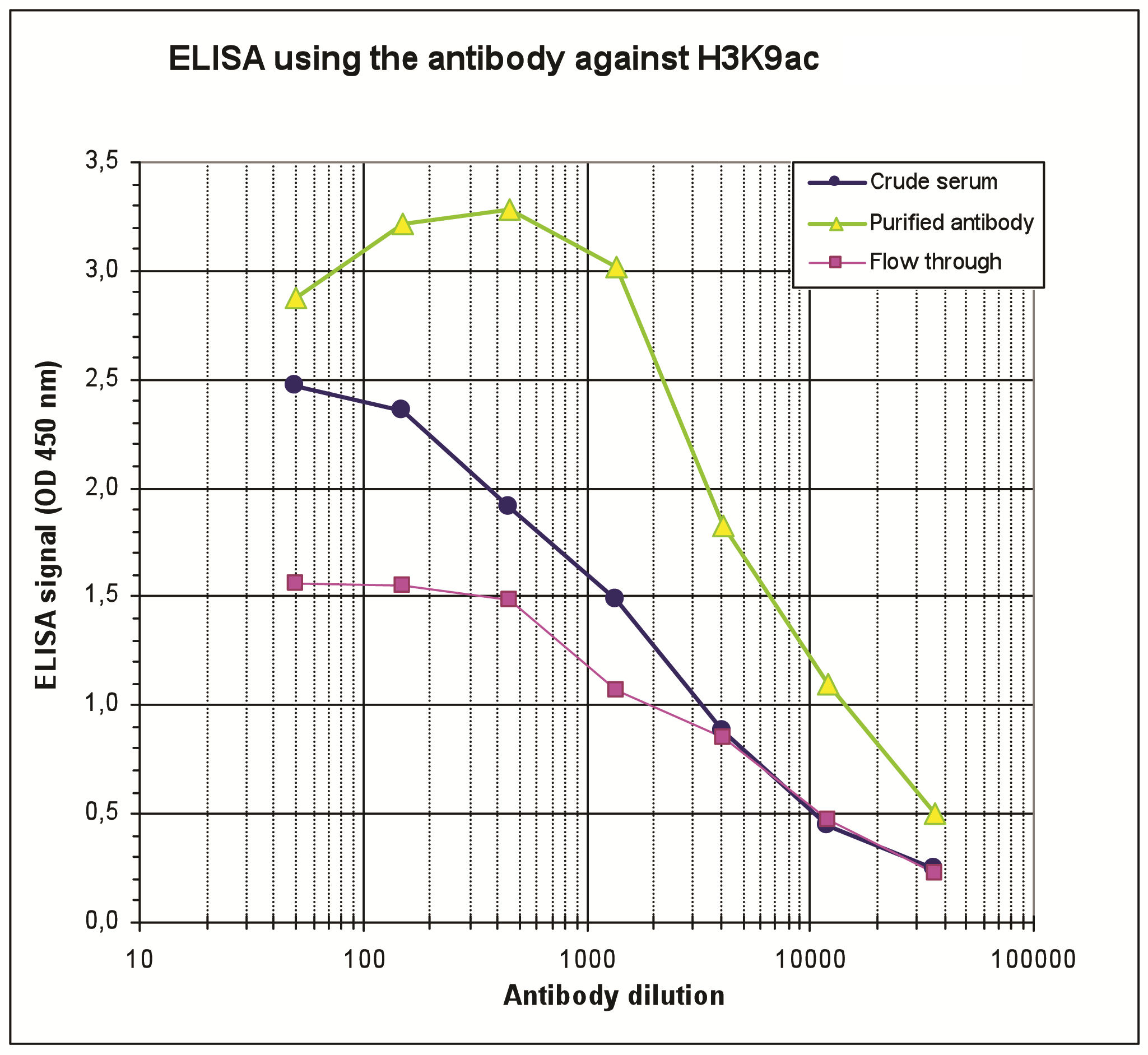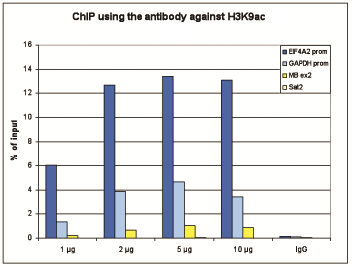
ChIP assays were performed using HeLa cells, H3K9ac Polyclonal Antibody (Cat. No. bs-53092R) and optimized PCR primer pairs for qPCR. ChIP was performed with a ChIP-seq kit, using sheared chromatin from 1 million cells. A titration consisting of 1, 2, 5 and 10 μg of antibody per ChIP experiment was analyzed. IgG (2 μg/IP) was used as a negative IP control. Quantitative PCR was performed with primers specific for the promoter of the active genes GAPDH and EIF4A2, used as positive controls, and for exon 2 of the inactive myoglobin (MB) gene and the Sat2 satellite repeat, used as negative controls. The figure shows the recovery, expressed as a % of input (the relative amount of immunoprecipitated DNA compared to input DNA after qPCR analysis). These results are in accordance with the observation that acetylation of K9 at histone H3 is associated with the promoters of active genes.
H3K9ac Polyclonal Antibody
BS-53092R
ApplicationsDot Blot, ImmunoFluorescence, Western Blot, ChIP Chromatin ImmunoPrecipitation, ELISA
Product group Antibodies
ReactivityHuman, Mouse, Plant, Plasmodium, Other Species
TargetH3C1
Overview
- SupplierBioss Antibodies
- Product NameH3K9ac Polyclonal Antibody
- Delivery Days Customer16
- ApplicationsDot Blot, ImmunoFluorescence, Western Blot, ChIP Chromatin ImmunoPrecipitation, ELISA
- Applications SupplierWB(1:300-5000), ELISA(1:500-1000), IF(), dot-blot(), ChIP-seq()
- CertificationResearch Use Only
- ClonalityPolyclonal
- Concentration1.35 ug/ul
- ConjugateUnconjugated
- Gene ID8350
- Target nameH3C1
- Target descriptionH3 clustered histone 1
- Target synonymsH3 histone family, member A; H3/A; H3C10; H3C11; H3C12; H3C2; H3C3; H3C4; H3C6; H3C7; H3C8; H3FA; HIST1H3A; histone 1, H3a; histone cluster 1 H3 family member a; histone cluster 1, H3a; histone H3.1; histone H3/a
- HostRabbit
- Protein IDP68431
- Protein NameHistone H3.1
- ReactivityHuman, Mouse, Plant, Plasmodium, Other Species
- Storage Instruction-20°C
- UNSPSC12352203

